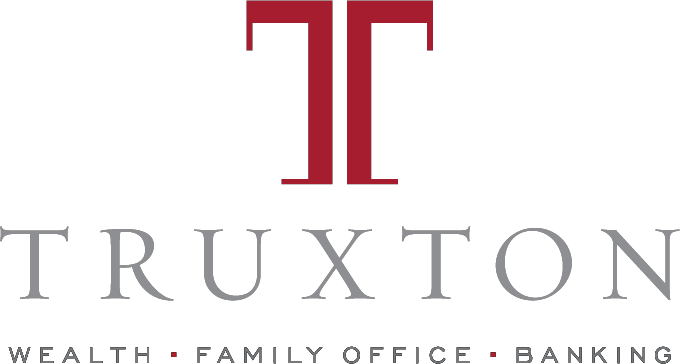Summer Reading
August 2022 will be my family’s last perennial dash to the finish line, completing a summer’s worth of required summer reading in the last few weeks of summer vacation. My son is a senior. Over the years, I’ve tried to set a good example to avoid the unavoidable dash by taking up an ambitious reading schedule of my own. This summer, I have been reading Bleak House by Charles Dickens. I chose it because someone told me it is about what I do for a living. Bleak House is a satirical tale of an estate gone bad. The Jarndyce family’s wealth has been sucked into Jarndyce versus Jarndyce, never-ending litigation that ties up (and probably consumes) family assets with no progress toward settlement. The various beneficiaries have become disinterested, discouraged, suspicious, angry, confused, etc. as they try to build lives without an understanding of the resources available to them. It’s ugly and I was a little concerned when parallels were drawn between my career choice and this mess. While the book satirizes perceived flaws in the Victorian British legal system, I assume the basic problem is one that still exists today: static documents in a world that ebbs and flows.
The disposition of a man or woman’s accumulated property is usually governed by a will or a trust established before the individual passes away, unless he or she didn’t write either which is a different problem. These are legal documents created at a point in time. As time goes on, circumstances change, people change, people forget things, laws change, businesses fail, businesses succeed; but the document remains the same until somebody changes it. This can lead to some rude surprises to beneficiaries and difficult situations for executors and trustees. Trust services personnel often find themselves obligated to execute a stale document in the face of circumstances that were not anticipated. The Jarndyce versus Jarndyce situation, was most likely a case of bad planning or inattention. Law is not that flexible, so when a stale document describes how to distribute disorganized assets to confused people, bad outcomes happen. Trust services as an industry has gained a reputation as risk-averse and inflexible because in many ways the law requires them to be that way and they are often forced to disappoint because nobody was paying attention when changes were possible.
Estate settlement can be chaotic because it involves pulling together disparate assets and distribution is governed by words created by someone who is no longer with us to explain. Without any prior knowledge and no involvement in planning, an executor is a very literal being. There is little room for adjustments or interpretations when the document and unintended outcome collide. Helping an individual prepare and update documents that address changing assets and family circumstances as well as care for themselves when they are no longer able is a process, not a point solution. Knowing the individuals involved informs decisions where necessary to fulfill the deceased’s dispositive wishes. If an estate settles in an organized fashion, everyone is free to go about his or her life. If there is uncertainty, painful delays and disputes can deprive people of their rightful gifts and create discord among family members.
Trusts are legal structures that serve many purposes. A trustee has the fiduciary obligation to execute the terms of the trust document and manage the assets appropriately. Trusts are legal entities created at a point in time, so they do have the potential to get stale. Careful planning and continuous evaluation while changes are still possible are the best remedies. Does the trust solve the issue that the grantor is trying to solve? Unnecessary or obsolete trusts can create more headaches than benefits. Additional details around asset selection and titling, beneficiary designations, distribution provisions and tax consequences are critical to achieving the intended outcome. Even once the trust is created and irrevocable, there are often opportunities for modifications, allowable beneficiary designations, and powers of appointments to better care for future beneficiaries living in a very different world.
For many reasons, ultimate success for estate planners depends on good investment outcomes. Estates and trusts shrink without an effective investment policy because of inflation. Deliberate investment strategy and “old-fashioned” and “stale” can seem like synonyms, but they are not. For wealthy families, we believe that a diversified portfolio of durable assets offers both healthy risk and return characteristics and tax-efficiency. The goal is a healthy average annual return with few surprises. For individuals, there are many controllable factors that require attention such as plans for diversifying concentrated investments, asset selection for gifts (individuals and charities) and adjustments to risk tolerance as circumstances change.
While the roles of Trustee, Executor and Manager are discrete roles legally speaking, matching intentions with legal documents and investments is a process that requires diligent management. Truxton has built our Wealth Management Services business on the belief that “trust work” can be done better when there is deep knowledge and proactive management. We’ve broadened the definition of “trust work” to include much more than the simple roles of trustee and executor. We believe that a relationship in the formative years of a good plan will produce better outcomes down the road.
I make fun of my son for procrastinating summer reading, but I did it too. I think most people would admit to a little bit of it. Summer is a fun, short respite from a rigorous schedule. That said, organization and regular reading sessions would lighten the burden significantly. At Truxton, our role in conducting “trust work” is to lighten the burden through organization and regular attention to controllable details that will make a big difference later. We believe that considering everything from documents, estate planning, retirement planning, insurance, investment management, asset titling and more is a useful service that can help keep a person’s hard-earned legacy from entanglement and dispute.

